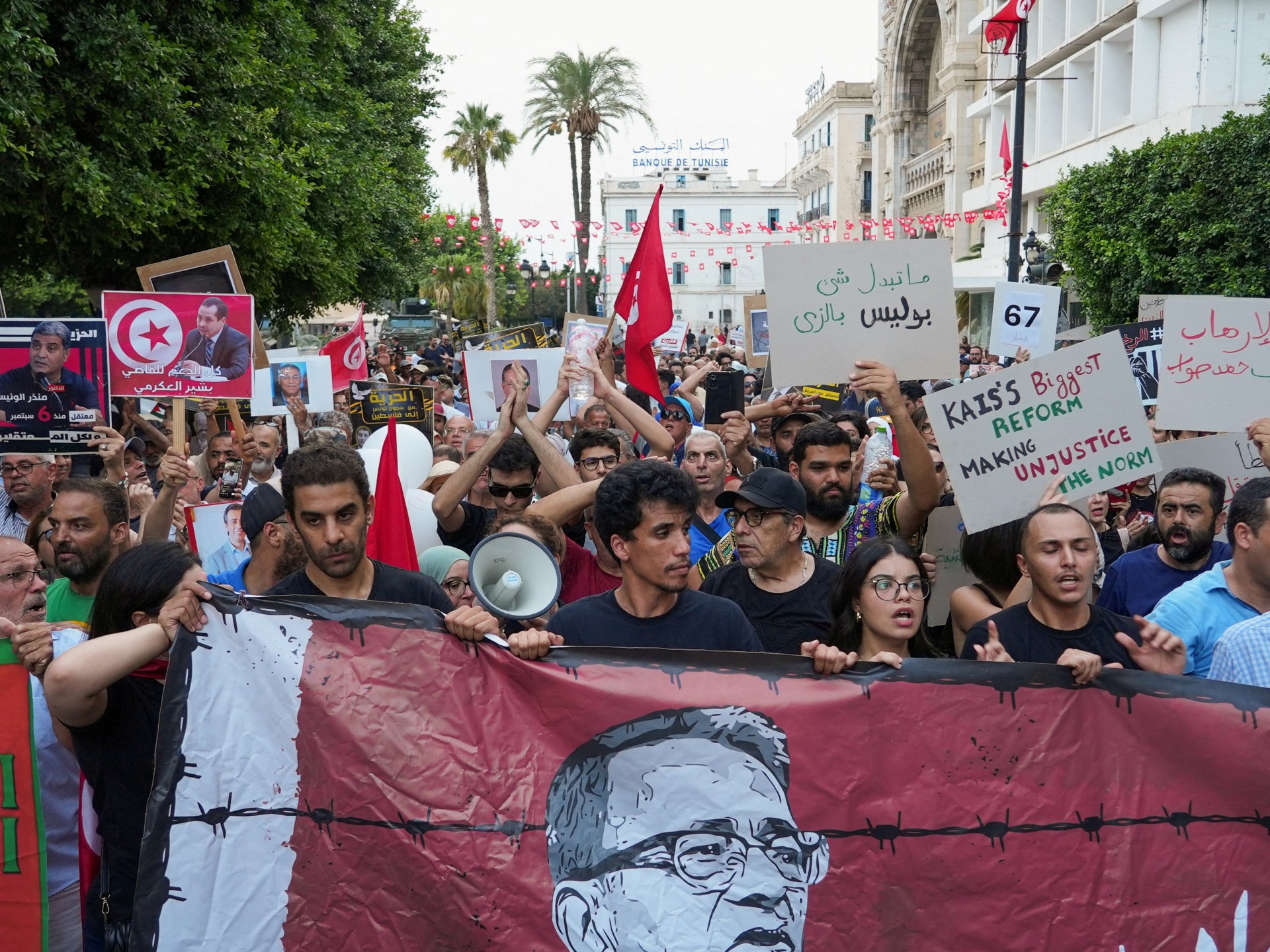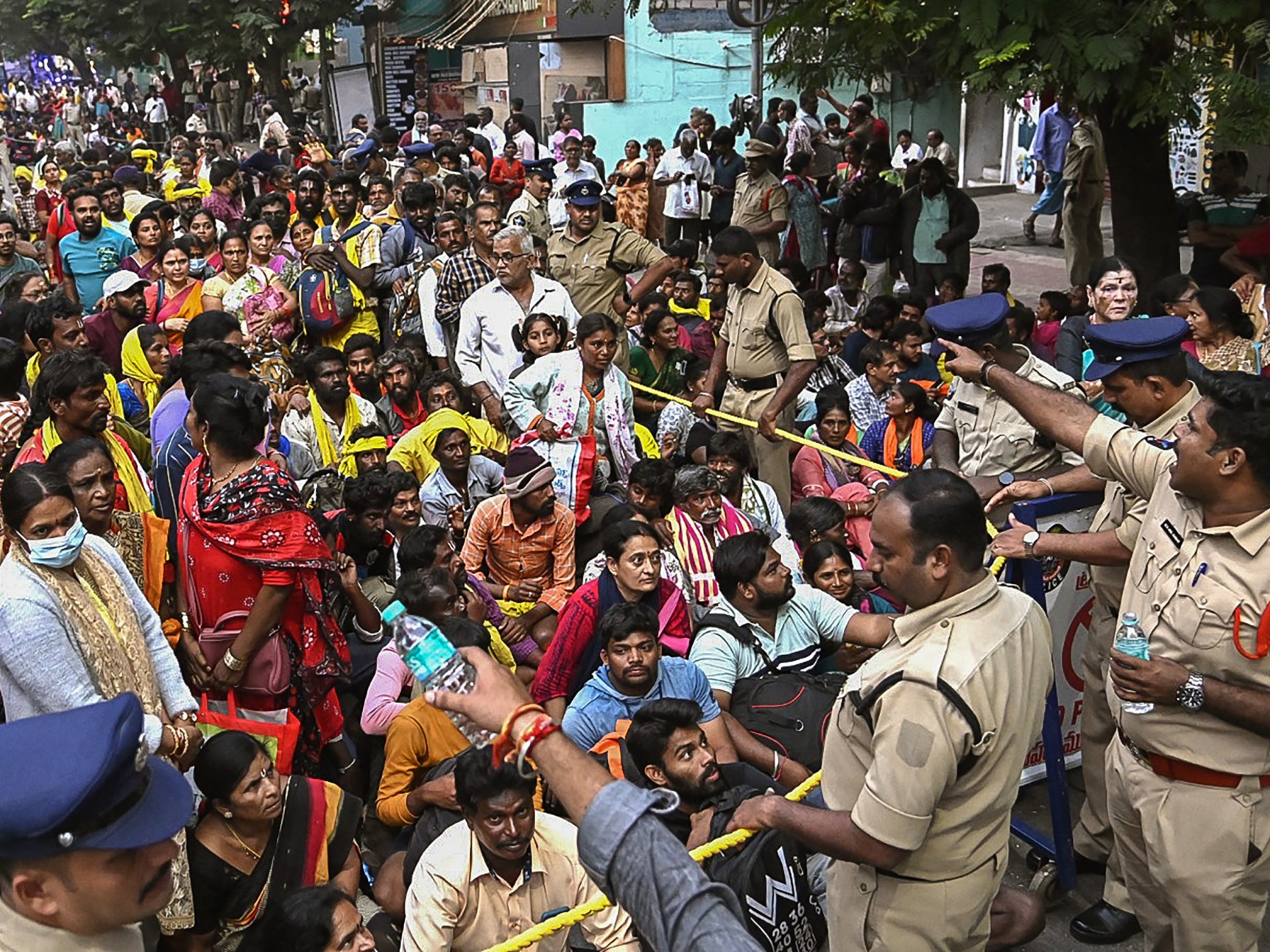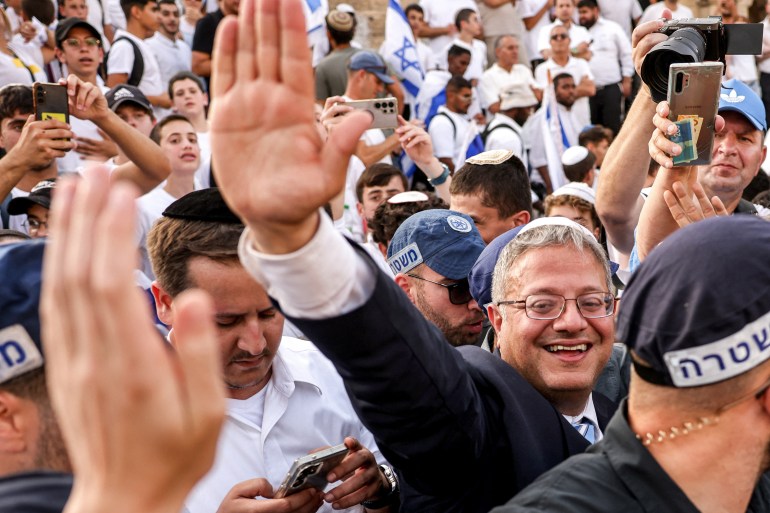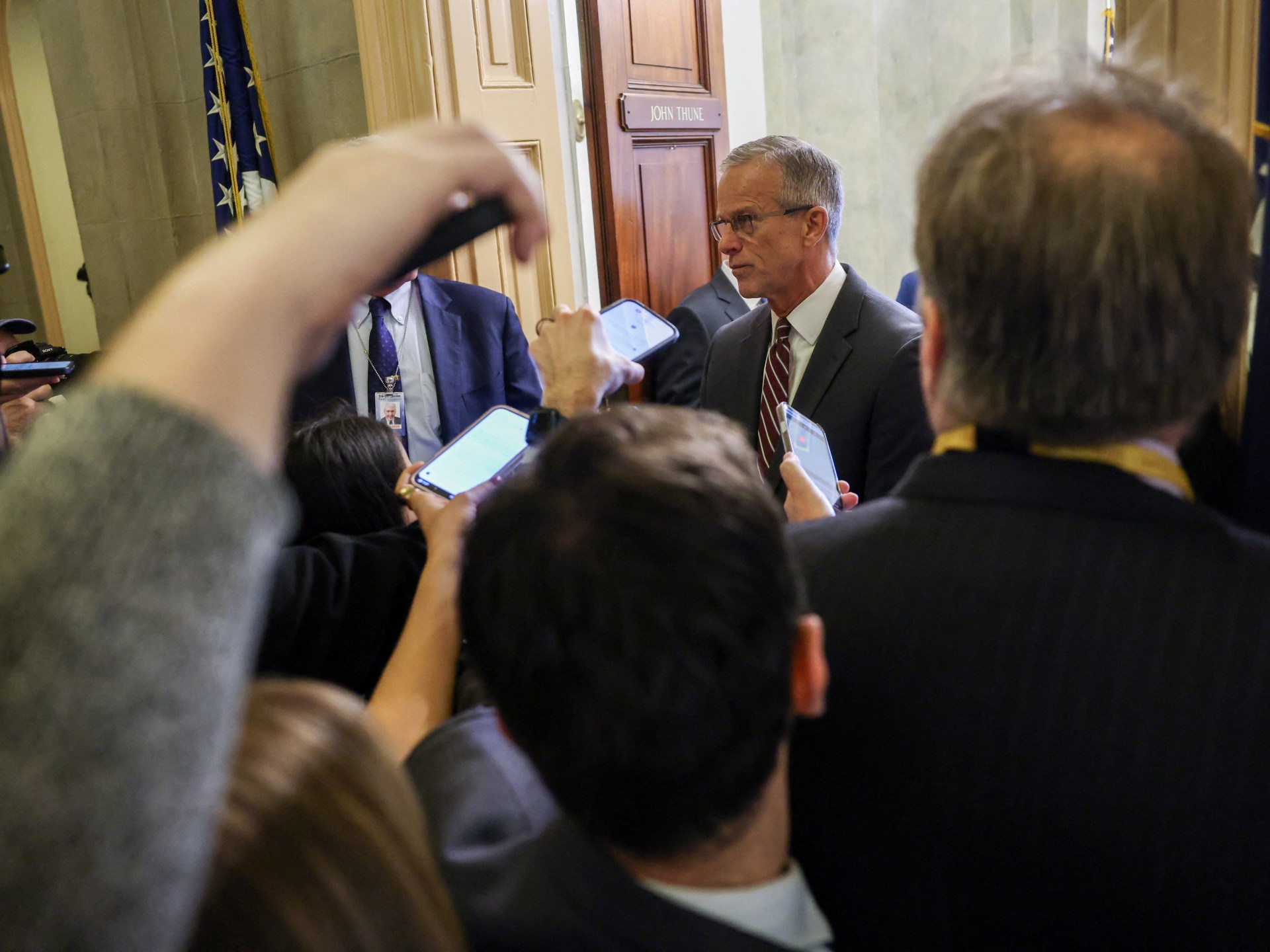A Tunisian court has sentenced Ahmed Souab, a lawyer and fierce critic of President Kais Saied, to five years in prison, his lawyer said, in a case that rights groups say marks a deepening crackdown on dissent in the North African country.
Defence lawyer Yosr Hamid said on Friday that her client had received an additional three-year sentence of “administrative supervision” after he was arrested in April following criticism of the legal process in a trial of prominent figures, including opposition leaders.
Recommended Stories
list of 3 itemsend of list
Souab’s trial on “anti-terror” charges lasted just seven minutes, according to Hamid, who voiced fears it sets a troubling legal precedent.
Hundreds of opposition figures, lawyers, journalists, trade unionists and humanitarian workers in Tunisia are being prosecuted for “conspiracy” or in connection with a “fake news” decree by authorities.
That legislation, Decree Law 54, has been criticised by rights activists, who are concerned over its broad interpretation by some courts.
Souab, 68, was not allowed to appear in court on Friday, declining to testify via videolink, according to Hamid. His legal team refused to enter a plea under the conditions.
Souab faces around a dozen charges related to the presidential decree on false information.
“The hearing lasted only seven minutes” before the judge retired to deliberate, Hamid told the AFP news agency on Friday.
He said there was a “lack of fundamental grounds for a fair trial” and that the decision to sentence after a one-day trial set “a precedent”.
Mongi Souab, the defendant’s brother, said authorities “prevented family members from entering” the court, criticising the brevity of the trial.
‘A dangerous escalation’
Souab was arrested in April after criticising the trial process for about 40 prominent figures, including opposition leaders, in a case related to “conspiracy against state security”.
Among those targeted in that case are figures from what was once the biggest party, Ennahdha, such as the leader and former Speaker of Parliament Rached Ghannouchi, former Prime Minister Hichem Mechichi, former Minister of Justice Noureddine Bhiri, and Said Ferjani, a member of the party’s political executive.
Souab was one of the principal defence lawyers.
After a trial involving just three hearings, without closing arguments or defence pleas, Souab accused authorities of putting “a knife to the throat of the judge who was to deliver the verdict”.
An anti-terrorism court interpreted the comment as a threat to the judges, and he was detained over it, but Souab’s lawyers said it was a reference to the huge political pressure on judges.
Heavy prison sentences of up to 74 years were handed down to those accused in the “conspiracy” mega-trial. The appeal related to that trial is scheduled to take place on November 17.
Silencing dissenting voices
Several dozen people demonstrated outside the court on Friday, brandishing photos of Souab and chanting that the country was “under repression and tyranny”.
Several Tunisian and foreign NGOs have decried a rollback of rights and freedoms since Saied seized full powers in 2021 in what critics have called a coup.
Separately on Friday, Tunisian authorities ordered the suspension of the Nawaat journalists’ group, which runs one of the country’s leading independent investigative media outlets, as part of a widening crackdown.
The one-month suspension follows similar actions against prominent civil society groups such as the Tunisian Forum for Economic and Social Rights and the Association of Democratic Women, both known for defending civil liberties.
Authorities cited financial audits linked to foreign funding as justification, but rights advocates said the real aim was to silence dissenting voices.
The National Union of Tunisian Journalists condemned the suspension as “a dangerous escalation in efforts to muzzle independent journalism under an administrative guise”.
Founded in 2004, Nawaat carried out investigations on corruption and human rights abuses before and after the revolution. In a statement, it said it would not be “intimidated by the current political climate or campaigns of defamation”.









